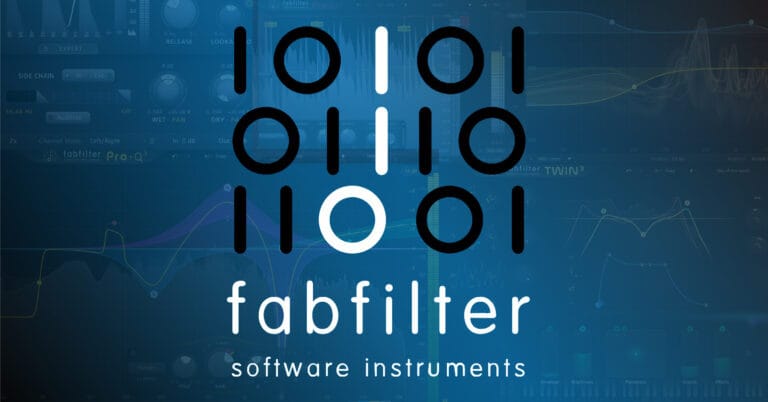
Photo by Orbital 101 Studio on <a href="https://www.pexels.com/photo/red-close-view-of-a-native-instruments-maschine-drums-machine-in-a-recording-studio-at-orbital-101-studio-marseille-18197120/" rel="nofollow">Pexels.com</a>
Since its start in 1984, Akai Professional has been a cornerstone in the evolution of music production technology. Known for their groundbreaking samplers, MIDI controllers, and digital audio workstations, Akai has redefined how music is created and performed. Akai’s innovations have touched the studios of legendary hip-hop producers. They continue to influence modern-day electronic musicians. These innovations have left an indelible mark on the music world.
The Birth of Akai Professional
Akai Professional originated as a division of Akai, a Japanese consumer electronics company founded in 1929. The parent company focused on consumer electronics like cassette decks and home audio systems. Akai Professional was then established to target the music industry specifically. Its mission was to create tools that would inspire musicians and revolutionise music production.
Headquartered in Tokyo, Japan, Akai Professional quickly gained international recognition for its innovative approach to music technology. The brand launched its first product, the S612 digital sampler, in 1985, which set the stage for decades of innovation.
Key People Behind Akai Professional
- Roger Linn
- Akai’s collaboration with Roger Linn, the inventor of the LinnDrum drum machine, was pivotal. Together, they developed the iconic MPC (Music Production Center) series, a product line that redefined music production workflows.
- Linn’s skill in drum machine technology and user-centric design became a hallmark of Akai’s ethos.
- Jack O’Donnell
- After acquiring Akai Professional in 2004 under his company inMusic Brands, O’Donnell revitalised the company. His leadership steered Akai into new markets and solidified its position as an industry leader.
- Tatsuro Akai (Founder of Akai)
- Tatsuro Akai was not directly involved in Akai Professional. Yet, his vision for innovation laid the groundwork for the company’s success in the music technology sector.
The Akai Professional Ethos: Innovation at the Core
Akai Professional’s ethos revolves around empowering musicians through innovation. They strive to create products that simplify complex production processes, enabling musicians to focus on creativity rather than technical challenges. Key pillars of their approach include:
- User-Friendly Design: Akai products are known for their intuitive interfaces, ensuring accessibility for both beginners and professionals.
- Cutting-Edge Technology: Akai has consistently been at the forefront of integrating new technologies. These range from early digital sampling to modern touch-screen interfaces.
- Versatility: Akai’s gear is designed to accommodate a wide range of musical genres. This versatility makes it a favorite among hip-hop, electronic, and pop producers alike.
Famous Products: Redefining Music Creation
Akai Professional has an impressive portfolio of products that have shaped the music industry. Here are some of their most iconic innovations:
1. MPC Series (Music Production Center)
- The MPC60 (1988), co-designed with Roger Linn, revolutionized music production by combining sampling and sequencing in a single device. It became the backbone of genres like hip-hop, R&B, and electronic music.
- Following models, including the MPC2000, MPC3000, and modern-day MPC Live and MPC X, have continued to push boundaries. They integrate advanced features like touchscreen interfaces, Wi-Fi connectivity, and standalone production capabilities.
2. S900 and S950 Samplers
- The S900 (1986) was one of the first affordable digital samplers, offering professional-quality sound and features. It became a studio staple in the 1980s and 1990s.
- The S950, its successor, featured improvements like time-stretching and pitch-shifting. These advancements cemented its place in the history of hip-hop and electronic music.
3. APC Series (Ableton Performance Controller)
- In collaboration with Ableton, Akai developed the APC40 in 2009, a controller specifically designed for the Ableton Live software. This product transformed live performances by enabling seamless integration between hardware and software.
4. Akai EWI (Electronic Wind Instrument)
- The EWI Series provided a digital choice for wind instrument players. It merged traditional playing techniques with the power of MIDI and synthesis. The EWI remains a popular choice among experimental musicians and composers.
5. MPK Series MIDI Keyboards
- The MPK series brought Akai’s innovative touchpads and sequencing capabilities to the world of MIDI keyboards. These controllers are widely used in studios and live performances.
Success Stories: Redefining Music Production
The MPC’s Role in Hip-Hop History
The MPC series has played a central role in the evolution of hip-hop. Legendary producers like J Dilla and DJ Premier relied on MPCs to create beats that defined the genre.
- J Dilla’s masterpiece album “Donuts” was crafted almost entirely on an MPC3000.
- The MPC’s sampling and sequencing capabilities allowed producers to chop up samples creatively, turning old records into entirely new compositions.
The Sampler Revolution
The S900 and S950 samplers empowered producers to manipulate sounds in ways that were once unimaginable. Akai’s samplers became the backbone of electronic music, dance music, and film soundtracks throughout the 1980s and 1990s.
Live Performance with APC Controllers
The APC40 revolutionised live electronic music performances. Artists like Deadmau5 and Flying Lotus used the APC40 to create dynamic performances in real-time. They bridged the gap between studio production and live performance.
Challenges and Failures: Learning from the Struggles
Bankruptcy of Akai Corporation (2000)
- Financial difficulties led to the bankruptcy of Akai Corporation in 2000, putting the future of Akai Professional at risk. Yet, the acquisition by Jack O’Donnell in 2004 helped revive the brand under inMusic Brands.
Struggles in Competing with Software
- Ableton Live and FL Studio are software-based music production tools. As they grew in popularity, Akai faced challenges in maintaining its dominance. Yet, they adapted by creating hybrid products like the MPC Live, which combines hardware and software workflows.
Obsolete Products
- Early Akai samplers like the S612 became quickly outdated as technology advanced. While these products were revolutionary at the time, they lacked the longevity of later models like the S950.
Impact on Music: The Akai Professional Legacy
Akai Professional’s impact on music is vast, spanning multiple genres and decades. Below are some key aspects of their influence:
1. The Birth of Sampling Culture
- Akai’s samplers democratised sampling, allowing producers to manipulate sounds and create entirely new compositions. This technology became the foundation of genres like hip-hop, jungle, and trip-hop.
2. Iconic Tracks Created with Akai Gear
- Many classic hip-hop tracks, including “N.Y. State of Mind” by Nas and “Juicy” by The Notorious B.I.G., were created using Akai MPCs.
- Electronic artists like The Prodigy and Aphex Twin used Akai samplers to craft their groundbreaking soundscapes.
3. Empowering Independent Producers
- Akai’s affordable gear has enabled countless independent musicians to create professional-quality music without the need for expensive studio time.
4. Redefining Live Performances
- With products like the APC40 and the MPC Live, Akai has transformed live performances. They allow artists to blend traditional musicianship with real-time digital manipulation.
Recent Innovations and the Future of Akai Professional
Under the leadership of inMusic Brands, Akai has continued to innovate. Recent products like the MPC One are compact standalone production units. The Force is a hybrid performance workstation. These products show Akai’s commitment to pushing boundaries.
Artificial intelligence and cloud-based workflows are becoming more prevalent. Akai is ready to integrate these technologies into their products. This integration ensures their relevance in the ever-changing music industry.
Conclusion: A Legacy of Innovation and Influence
Akai Professional is more than just a music technology company. It’s a driving force behind some of the most significant advancements in music production. It also shapes performance. The MPC series shaped hip-hop and electronic music. Akai has introduced groundbreaking samplers and controllers. The company has consistently empowered musicians to push creative boundaries.
Their commitment to innovation is unwavering. They focus on accessibility and versatility. This ensures that Akai will stay a cornerstone of music technology for generations to come. Whether you’re a bedroom producer or a world-touring artist, Akai Professional’s tools are designed to inspire and transform your music.



